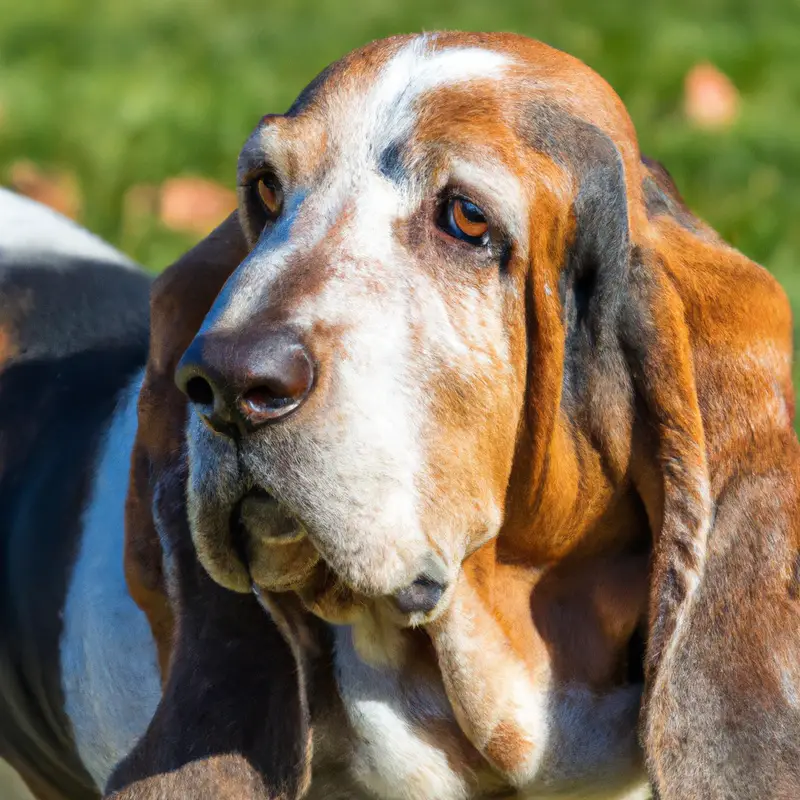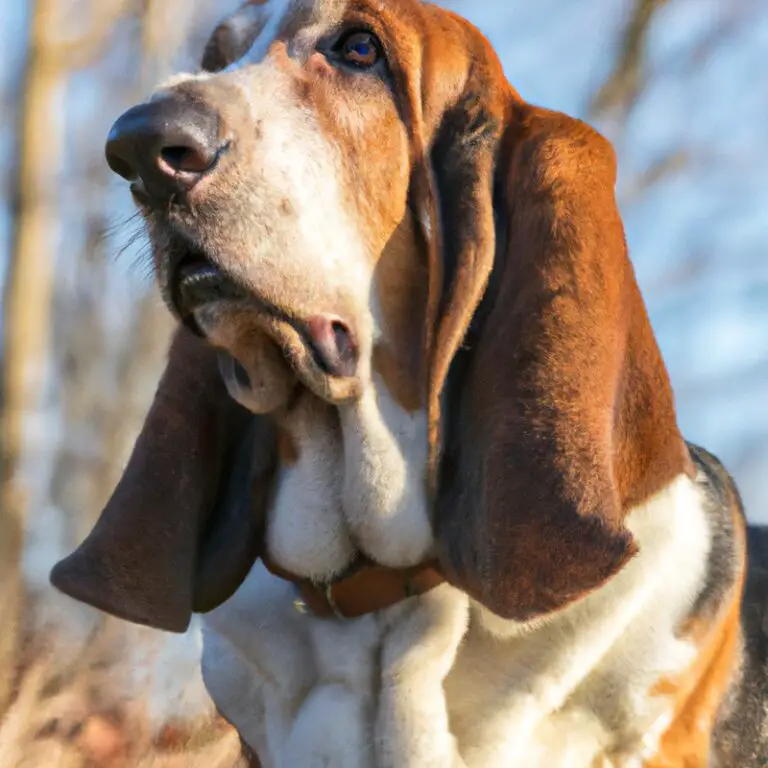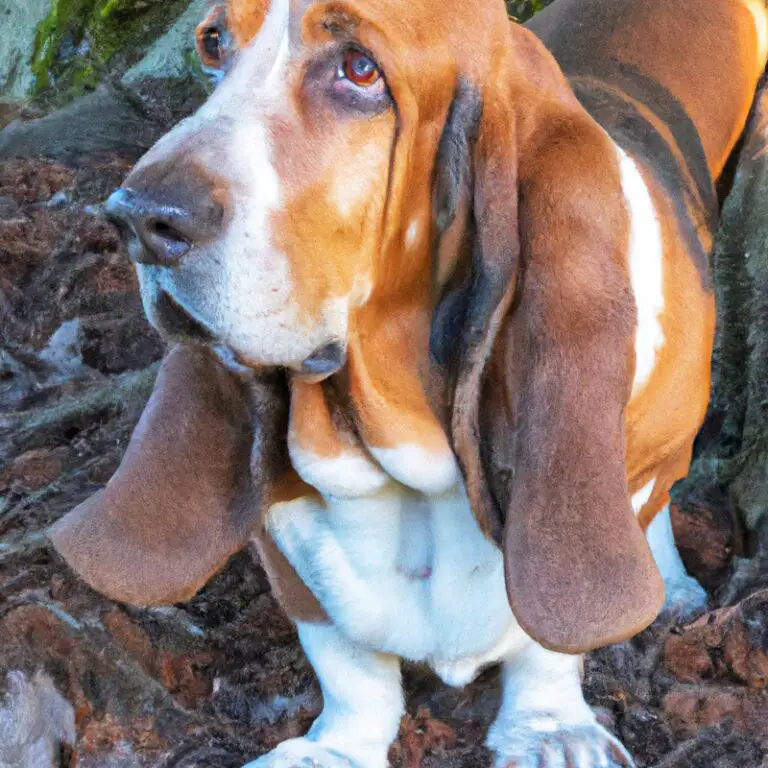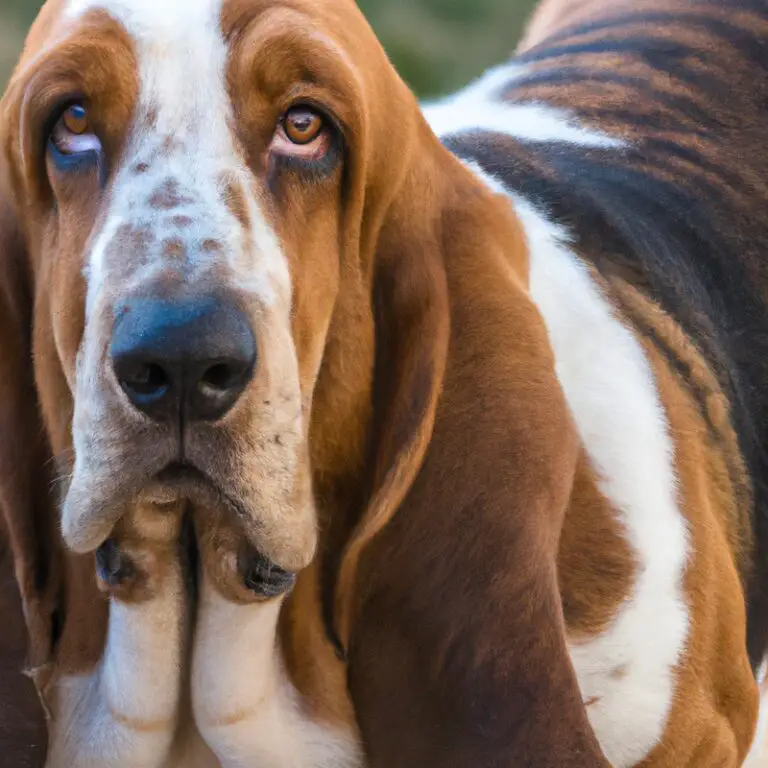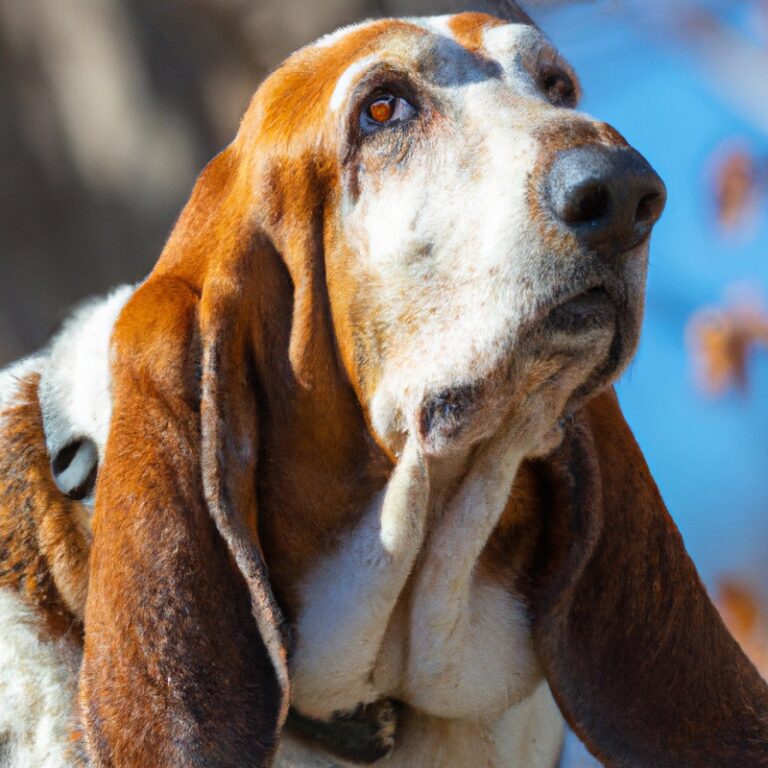How Do Basset Hounds Behave Around Unfamiliar Exotic Animals?
Key Takeaways:
- Basset Hounds may exhibit curiosity or aloofness towards unfamiliar exotic animals.
- They are generally friendly and non-aggressive, but caution should be exercised during introductions.
- Basset Hounds have a strong sense of smell, which may influence their behavior around exotic animals.
- Proper socialization and supervision are important for ensuring positive interactions between Basset Hounds and unfamiliar exotic animals.
Imagine this scenario: you’re strolling through a wildlife park, surrounded by splendidly vibrant and exotic animals. Suddenly, you catch sight of a group of Basset Hounds, their droopy ears and soulful eyes capturing your attention.
But wait, how will these gentle giants react to these unfamiliar and wild creatures?
As an expert on Basset Hound behavior, I’m here to guide you through the fascinating world of how these dogs behave around unfamiliar exotic animals. We’ll explore their natural instincts, potential reactions, and the factors that influence their responses.
Plus, I’ll share valuable tips for introducing Bassets to these captivating creatures while ensuring everyone’s safety.
Let’s embark on this adventure together and learn all about Basset Hounds and their curious encounters with exotic animals!
| Exotic Animal | Basset Hound’s Behavior |
|---|---|
| Tiger | Curious, but cautious. May approach slowly to sniff and observe, but generally keeps distance and avoids confrontation. |
| Elephant | Indifferent. Basset Hounds may show interest initially, but quickly lose interest and may ignore the elephant. |
| Giraffe | Curious and intrigued. Basset Hounds may try to sniff and explore the giraffe, but usually without any aggressive behavior. |
| Kangaroo | Confused and cautious. Basset Hounds may not know how to react to the hopping movements of the kangaroo, preferring to keep their distance. |
| Snake | Vigilant and wary. Basset Hounds may bark at snakes, but are generally reluctant to approach them. They may exhibit signs of caution and attempt to avoid them. |
Understanding Basset Hound Behavior
Behavioral Traits of Basset Hounds
Basset Hounds have some distinctive behavioral traits that make them unique. One notable trait is their friendly and gentle nature.
They are known for being affectionate and good with children.
Bassets are also quite laid-back and are generally not high-energy dogs. They have a strong sense of smell and may be prone to following scents, which can sometimes lead them to wander off.
Basset Hounds are generally good-natured dogs that make wonderful companions.
However, they can be stubborn at times and may require patient and consistent training.
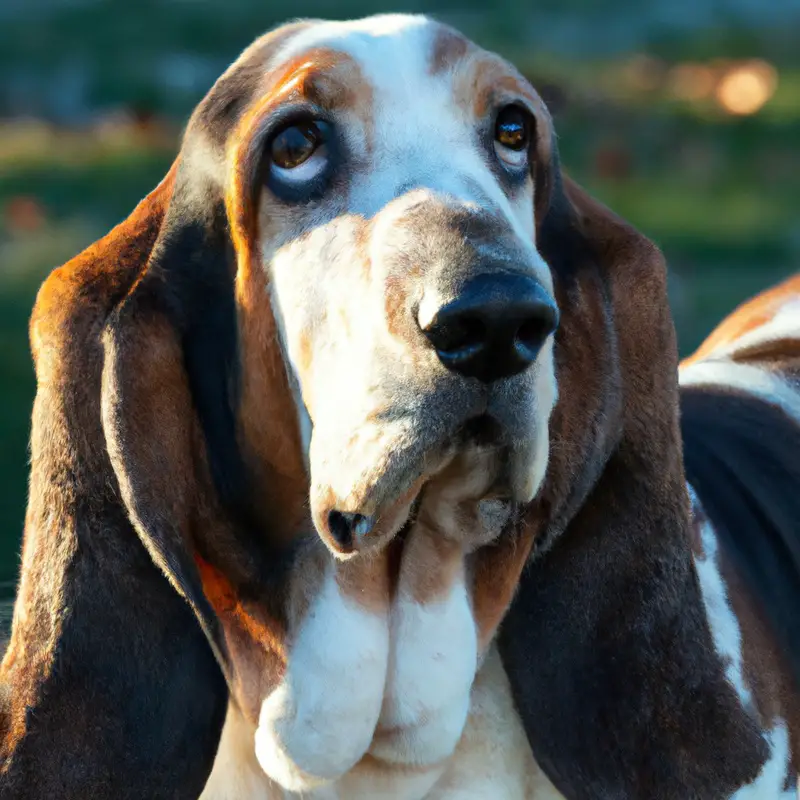
Factors That Affect Basset Hound Behavior
Many factors can influence a Basset Hound’s behavior.
One key factor is their genetic predispositions, which can influence traits like friendliness or aggression.
Socialization is also crucial, as early exposure to different people, animals, and environments can shape their behavior.
Training and reinforcement techniques play a significant role in their behavior as well.
Providing a stable environment and consistent routines can help them feel secure and reduce stress.
Additionally, their health and overall well-being can impact their behavior.
Regular exercise, proper nutrition, and veterinary care are essential in maintaining a balanced and well-behaved Basset Hound.
Basset Hound Behavior towards Unfamiliar Exotic Animals
Natural Instincts of Basset Hounds
Basset Hounds have a few natural instincts that shape their behavior. They are renowned for their exceptional sense of smell, which can lead them to become easily distracted when they catch a scent.
They also have a strong prey drive, meaning they may chase after small animals.
Bassets are known for their calm and laid-back temperament, but they are also prone to stubbornness. It’s important to understand and appreciate these natural instincts when living with or training a Basset Hound.
Potential Reactions and Behaviors
Basset Hounds may react differently when encountering unfamiliar exotic animals. Some potential reactions and behaviors include curiosity, fear, aggression, or indifference.
They might approach out of curiosity or display fear by barking, growling, or cowering.
Aggressive behaviors like lunging or chasing can also occur, especially if the exotic animal resembles prey. On the other hand, some Basset Hounds may show indifference and simply ignore the exotic animal.
It’s important to remember that each Basset Hound is unique, and their reactions can vary.
Understanding these potential reactions can help in managing interactions between Basset Hounds and unfamiliar exotic animals.
Factors Influencing Basset Hound’s Response
Several factors can influence how a Basset Hound responds to unfamiliar exotic animals.
One factor is their natural instincts, which may cause them to be curious or cautious.
The dog’s previous experiences and socialization also play a role in their response.
Additionally, the behavior and body language of the exotic animal can impact the Basset Hound’s reaction.
The environment and level of supervision can influence their behavior as well.
Understanding these factors is crucial in ensuring a positive interaction between Basset Hounds and unfamiliar exotic animals.
Tips for Introducing Basset Hounds to Unfamiliar Exotic Animals
Gradual Introduction and Supervision
When introducing your Basset Hound to unfamiliar exotic animals, it’s important to take a gradual approach and provide constant supervision.
Start by allowing them to observe the exotic animal from a safe distance, gradually reducing the distance over time.
This will help your Basset Hound become familiar with the new animal’s scent and behaviors.
Always keep a close eye on their interactions to ensure everyone’s safety.
And remember, if you’re unsure or concerned about how they may react, it’s always a good idea to seek professional help.
Positive Reinforcement and Conditioning
Positive reinforcement and conditioning are effective tools when introducing basset hounds to unfamiliar exotic animals.
This involves rewarding desired behaviors, such as calmness and curiosity, with treats, praise, or play.
By consistently reinforcing these behaviors, basset hounds will associate them with positive experiences.
Conditioning can also be used to gradually expose the hound to the exotic animal, starting with controlled and supervised interactions.
This helps the hound build positive associations and reduce any potential fear or aggression.
Seeking professional help can further ensure a successful introduction.
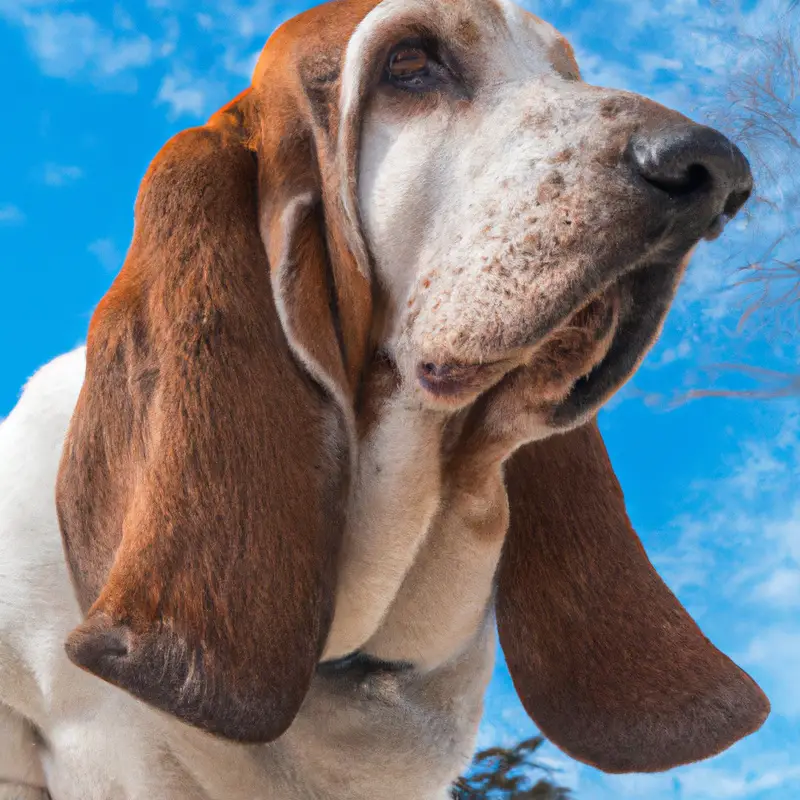
Seek Professional Help if Needed
If you’re having trouble introducing your Basset Hound to unfamiliar exotic animals, don’t hesitate to seek professional help.
A professional dog trainer or animal behaviorist can provide valuable guidance and expertise in managing this situation.
They can assess your Basset Hound’s behavior, provide specific training techniques, and help you create a safe and positive environment for all animals involved.
Remember, seeking professional help can make a world of difference in ensuring a harmonious relationship between your Basset Hound and exotic animals.
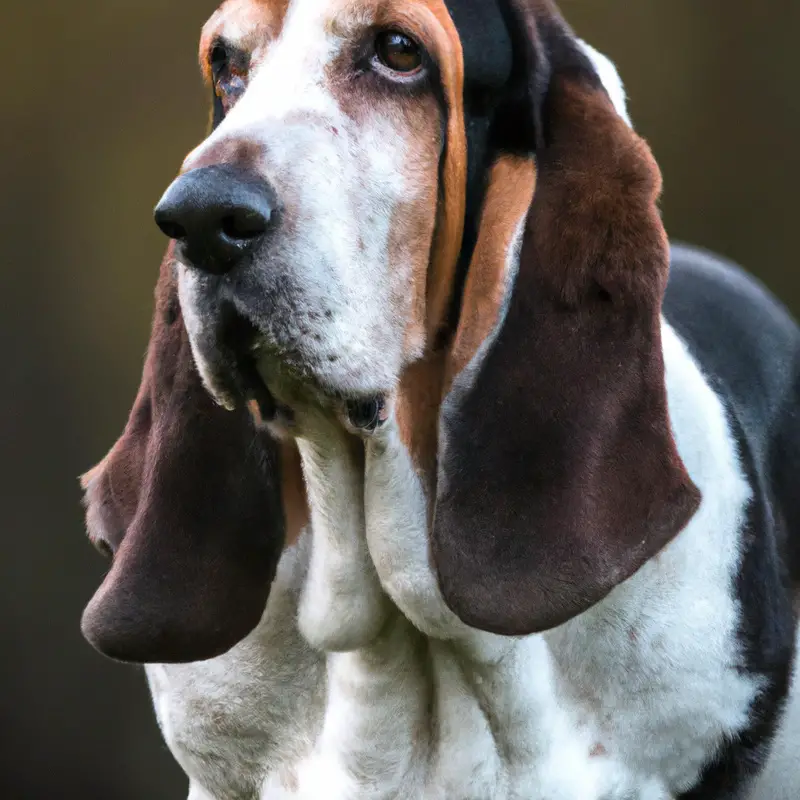
Precautions to Take When Basset Hounds are around Unfamiliar Exotic Animals
Ensuring Safety for Both Basset Hounds and Exotic Animals
Ensuring the safety of both Basset Hounds and exotic animals is of utmost importance.
One key step is to provide a secure and supervised environment for interactions.
It’s crucial to closely monitor their behavior and intervene if any signs of aggression or stress arise.
Additionally, it’s important to educate yourself about the specific needs and behaviors of the exotic animals to ensure a harmonious environment.
Seeking professional help or advice from experts is always a good idea when introducing these animals to each other.
Recognizing Signs of Aggression or Stress
Recognizing signs of aggression or stress in Basset Hounds is essential for ensuring the safety of both the hounds and the unfamiliar exotic animals.
Some common signs of aggression include growling, snarling, baring teeth, lunging, or raised hackles.
Signs of stress may include pacing, excessive panting, trembling, or avoidance behaviors.
It’s crucial to keep an eye out for these signs and intervene if necessary to prevent any negative encounters.
Understanding these signs will help you create a safer environment for everyone involved.
Steps to Avoid Negative Encounters
To avoid any negative encounters between your Basset Hound and unfamiliar exotic animals, it’s important to take a few precautions. Firstly, always supervise their interactions closely to ensure the safety of both animals.
Secondly, be attentive to signs of aggression or stress in either your dog or the exotic animal.
Thirdly, provide a safe and controlled environment for introductions. Lastly, consider seeking professional help if needed to ensure a smooth and positive interaction.
Taking these steps will help minimize any potential risks and create a safe environment for all involved.
Final Verdict
Basset Hounds have a friendly and curious nature, which can generally make them adaptable to unfamiliar exotic animals. However, their natural instincts and individual personalities play a significant role in determining their behavior.
It is crucial to introduce Basset Hounds and exotic animals gradually, supervise interactions, and use positive reinforcement to create positive associations.
If any signs of aggression or stress arise, it’s important to take immediate action to ensure the safety of both the Basset Hound and the exotic animal. Seeking professional help is always a viable option.
Overall, with the right approach, Basset Hounds can coexist harmoniously with unfamiliar exotic animals.

